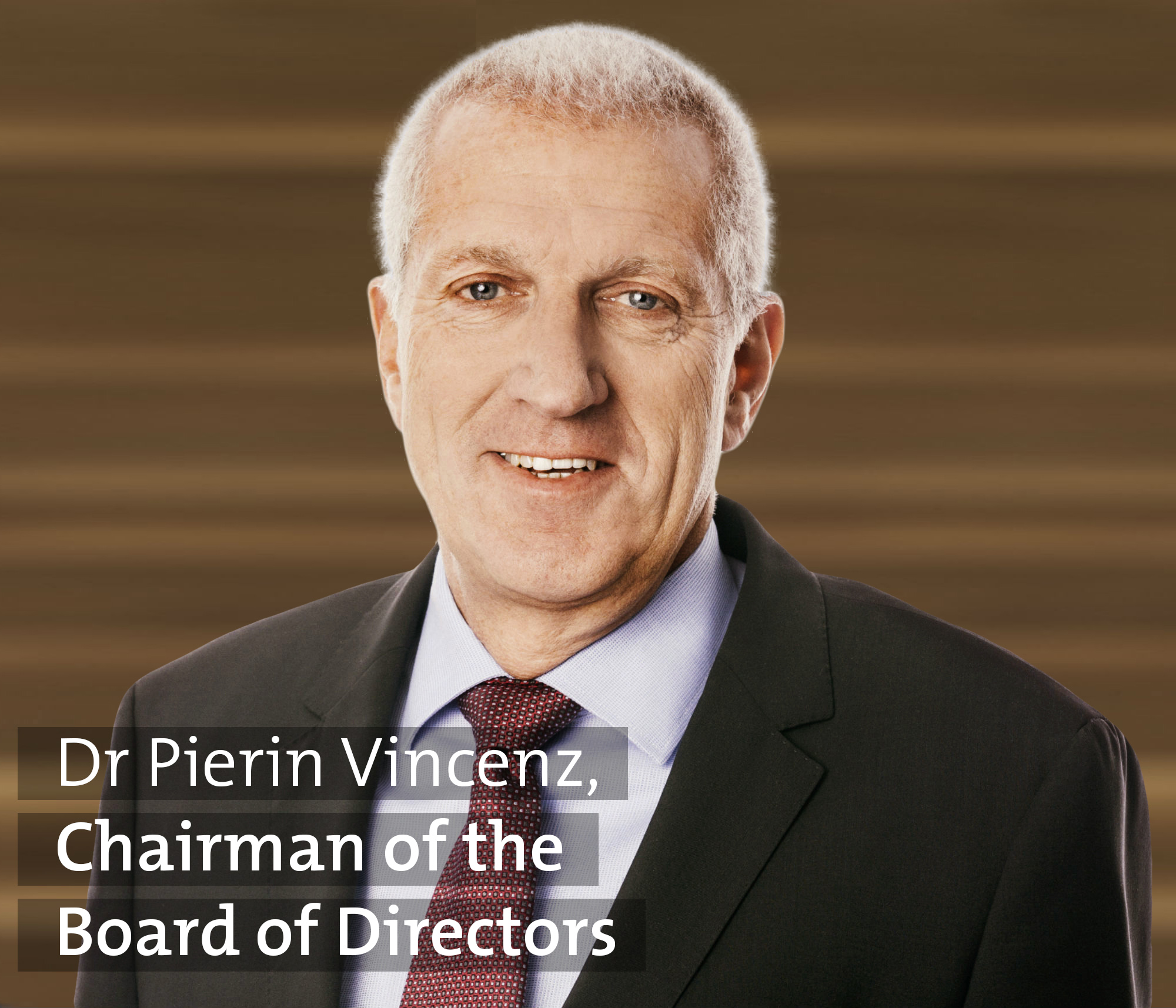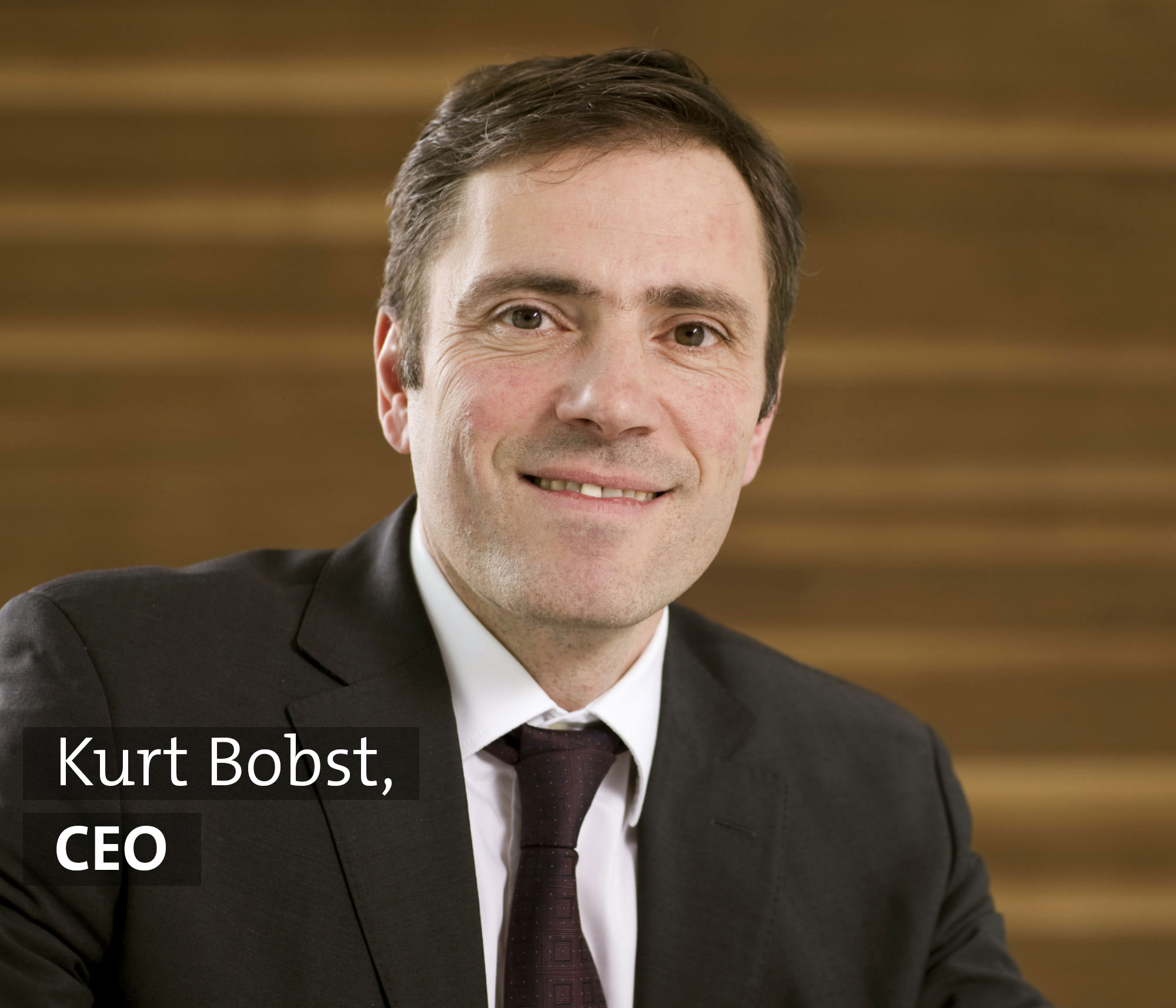
Foreword from the Chairman of the Board of Directors and CEO


The year 2016 saw continued change for Repower. The company increased its capital, extended its shareholder structure, and realigned itself as a sales- and service-oriented organisation. Operating income (EBIT) was substantially higher than the previous year at CHF 22 million.
HIGHLIGHTS OF 2016
In the year under review Repower successfully increased its capital with a rights issue generating proceeds of around CHF 171 million. A key component of this was the involvement of two new investors, Elektrizitätswerke des Kantons Zürich (EKZ) and UBS Clean Energy Infrastructure Switzerland KGK (UBS-CEIS), which now hold interests of 28.32 per cent and 18.88 per cent respectively in Repower AG. The existing shareholders now hold 21.96 per cent (Canton Graubünden) and 12.69 per cent (Axpo Holding AG), while the free float comes to 18.15 per cent. Added to this, Repower further simplified its structures by delisting its securities from the SIX Swiss Exchange and introducing a unified registered share in place of bearer shares and participation certificates.
Since June 2016 Repower has also had a new chairman, with Dr Pierin Vincenz taking over the chair of the Board of Directors from Dr Eduard Rikli.
Last year was shaped by efforts to strengthen Repower’s orientation to sales and services. The aim is to penetrate new fields of business to become less dependent on the absolute price of electricity. Repower professionalised its service offering for customers, while at the same time systematically trimming its internal structures to the requirements of a sales organisation; the new organisation takes effect at the beginning of 2017. Trading, Grid, Generation and Repower’s participations now run together under a new division, Service Provision. This new division delivers the services that are then sold by the teams at the Market division. The company has also created a new Product Management unit, with effect 1 January 2017.
Repower notched up a major success with Repartner Produktions AG, the production investment company it established in 2012. Repower and the nine other energy providers that hold an interest in Repartner Produktions AG signed a joint long-term energy supply agreement under which the partners are granted the right, running until 2085, to take energy totalling around 240 gigawatt hours on the basis of the power generation of Repower’s Klosters, Küblis and Schlappin hydropower plants in the Prättigau. This welcome move to extend cooperation was one factor that enabled Repower to reduce its long position. It also marks a strengthening of the company’s partnership strategy and a clear vote of confidence in renewable hydropower from Graubünden.
CHF million
Funds accruing from the rights issue staged in 2016GWh
Energy which Repartner Produktions AG shareholders are entitled to purchaseFor the first time Repower used an innovative financing model for the renovation of the Morteratsch power plant in the Engadine. Repower’s partner, an infrastructure fund, provided around CHF 10.5 million to largely finance the plant, while Repower is responsible for construction, operation and deployment.
Finally, in 2016, as announced, Repower withdrew from Romania, selling its business there to the MET Group.
Another important development was the market launch of Plug’n Roll, a service for electric vehicles. Repower is working with its customers to set up a broad charging network for electric vehicles, plus related services.
OPERATING ENVIRONMENT
From autumn 2016 signs emerged of a slight increase in energy market prices. Despite this, it is too early to speak of a sustained recovery.
While the importance of hydropower was acknowledged on the political level during the parliamentary debate on the federal government’s Energy Strategy 2050, the goal of giving this home-produced renewable energy resource a sustained boost is a long way off, because the necessary framework for electricity producers is lacking. In 2016 further debate on energy policy issues such as the phase-out of nuclear power continued to disconcert the industry.
The EUR/CHF exchange rate remained at a low level, which posed a major challenge for companies like Repower that conduct a large part of their business in euros.
A great deal of turmoil and political instability in the global arena also added to the economic uncertainty.
RESULTS
Given the lower prices over the year as a whole and the difficult market environment, at CHF 1.7 billion Repower’s 2016 total operating revenues were 8 per cent down on the previous year’s figure. On the other hand operating income (EBIT) was considerably higher than in 2015 at CHF 22 million. The reasons for this were a gratifying performance on the day-ahead and balancing energy market in Italy (income of CHF 25 million), disposals of non-operational properties, and the sale of the subsidiary connecta ag (totalling CHF 12 million). A number of exceptional items had a negative impact overall. They included impairment gains on generation assets (CHF +15 million), an increase in provisions for long-term agreements (CHF –1.5 million) and impairments on overdue receivables at Sales in Italy (CHF –22 million). Group profit came to CHF –13 million.
CHF billion
Total operating revenue 2016CHF million
Operating income (EBIT) 2016A number of different factors had a negative impact on financial results (see comments on financial results). Thanks to the increase in capital, however, there was a sharp increase in equity to CHF 763 million, and the equity ratio is a solid 44.8 per cent. At CHF 69 million, operating cash flow was substantially better than the previous year and several ties greater than investment.
STRATEGY
Repower’s strategy is systematically geared to sales and services. In Switzerland, in addition to its retail business the group focuses primarily on customers in the energy utility segment and other partners to which it supplies services and products. In Italy the company is also endeavouring to substantially step up its sales business. The recruitment of additional salespeople for the Italy-wide sales network in 2016 was the first step in this direction.
Repower is also working hard to drive its partner strategy forward. One example is the cooperation described above within the framework of Repartner Produktions AG.
A cornerstone of Repower’s strategy is safeguarding the value of its hydropower generation assets. In 2016 Repower achieved important milestones along this path with plans to bring the Prättigau cascade under Repartner Produktions AG, the use of a new financing model for the rebuilding of the Morteratsch power plant, and the inclusion of various installations in the feed-in remuneration at cost (KEV) scheme.
In the year under review, Repower also prepared for the issue of two “green” SSD bonds to refinance parts of its renewable generation portfolio. The transaction was brought to a successful conclusion in January 2017.
Some of the disposals previously announced by the company took place in 2016 (the business in Romania), and others are still being looked into.
THANK YOU
The continued development of Repower last year would not have been possible without the hard work and commitment of the group’s entire staff, and we would like to express our warm thanks for their contribution. We would also like to thank our customers, partners and shareholders for the trust they have placed in us.
OUTLOOK AND OBJECTIVES
With the sales strategy, which has been implemented in large part already, and efforts to systematically realign its corporate structure accordingly, Repower is well positioned for the future. There should be no doubt, however, that the market environment will remain challenging in the next few years. For 2017 Repower anticipates operating results before exceptional items at around 2015 levels. All other things being equal, however, given that generation capacity will be taken off the grid in Germany, which should have a positive impact on prices, there are indications that a slight recovery might take place from 2019. Repower will continue to develop its focus on sales and at the same time work to safeguard the value of its hydropower assets. With this strategy and the successful increase in capital, in 2016 Repower laid a good foundation for the future development of the business.

Chairman of the Board of Directors

CEO